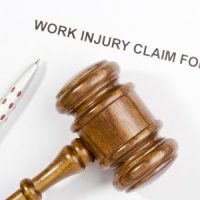Accused of Being Intoxicated After Tampa Workplace Accident: What Should I Do?

Workers often struggle to recover after Tampa workplace accidents, and their recovery may be even more challenging if they face false allegations of intoxication. If you were accused of drinking or taking drugs at work, you could face an uphill battle as you fight for compensation. How does Florida deal with these situations? How do you prove that you were sober on the day of your accident? These are questions you might want to ask a workers’ compensation lawyer.
Why Intoxicated Workers Are Ineligible for Workers’ Compensation
Under Florida’s workers’ compensation statute, workers are not eligible for workers’ compensation if the injury was mostly caused by “the intoxication of the employee.” This includes being under the influence of any drug, barbiturate, or stimulant not prescribed by a physician.
Florida’s worker’s compensation laws also state that any employer may subject their employee to a drug or alcohol test after the accident in order to determine whether they were intoxicated. Note that even if an employer does not have a clear “no drugs or alcohol” policy in place, they can still “require their employee to submit” to one of these tests. You can refuse to submit to the drug test, but this refusal constitutes proof of intoxication under Florida employment laws.
What “Counts” as Intoxication at the Workplace?
In terms of alcohol, Florida’s workers’ compensation laws follow the same standards as its traffic laws. In other words, you are legally “intoxicated” if you have a BAC level over 0.08%. In terms of drugs, the presence of any drugs in your system may constitute intoxication – even trace amounts.
How Can I Push Back Against Allegations of Intoxication?
The most obvious way to fight these allegations is to show that your alleged intoxication did not contribute to the accident in any meaningful way. This is an accepted defense strategy according to Florida law, and there are many situations in which it might apply.
For example, you might have been standing at the floor level of a construction site when someone dropped a hammer from the 7th floor. If this hammer struck you on the head and caused a traumatic head injury, you could argue that your intoxication had nothing to do with it. If you had been sober, you probably would have suffered the exact same injury.
Another strategy is to question the drug test results. False positives are certainly possible, and you could point out procedural errors in the testing methods. Some drugs, such as marijuana, remain in the human body long after the actual intoxicating effects wear off.
Can a Tampa Workers’ Compensation Lawyer Help Me Prove That I Was Sober?
A Tampa workers’ compensation lawyer may be able to help you prove that you were sober. This could mean the difference between a denied or approved workers’ comp claim – and it could ensure the payment of your medical bills and missed wages. To discuss your next steps, consider a consultation with The Franco Law Firm at your earliest convenience. Reach out today to get started.
Sources:
flsenate.gov/laws/statutes/2010/440.09
myfloridacfo.com/division/wc
